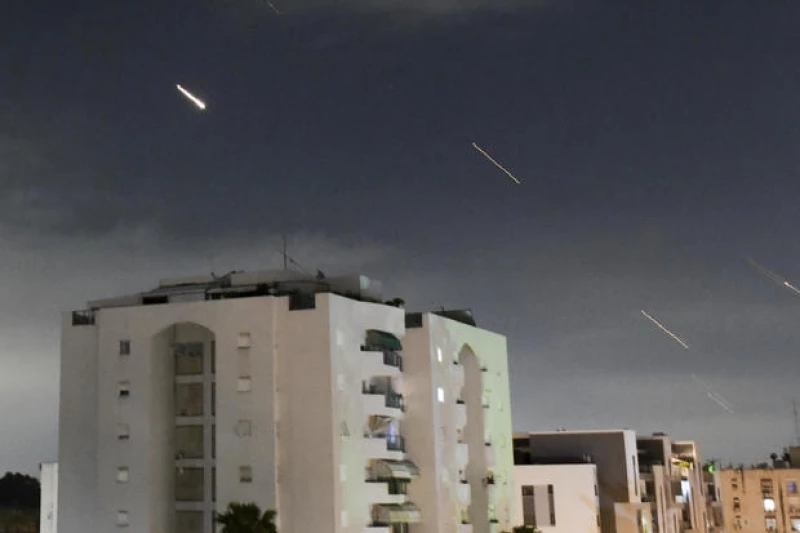Over the weekend, Iran carried out a retaliatory attack on Israel using hundreds of missiles and drones launched from various locations, including Iran-backed groups in different countries. Despite the large-scale attack, the Israel Defense Forces reported that almost all incoming projectiles were intercepted, resulting in minimal damage to the country.
Tragically, a 7-year-old girl sustained severe injuries from shrapnel during the attack and remains in critical condition. She hails from a Bedouin village in Israel's Negev desert.
The assault by Iran aimed to overwhelm Israeli and U.S. air defenses with a combination of drones and cruise missiles, creating a pathway for Iran's ballistic missiles, according to sources. The drones and missiles took several hours to reach Israel, with alerts sounding across the country around 2 a.m. local time on Sunday (7 p.m. Eastern on Saturday).
- U.S. won't participate in Israeli reprisal attack on Iran, officials say

The IDF reported that none of the 170 drones launched by Iran breached Israeli territory, and none of the over 30 cruise missiles fired by Iran reached their target.
Out of the 120 ballistic missiles directed at Israel from Iran, only five managed to bypass Israeli and U.S. air defenses, according to U.S. officials speaking to CBS News. Approximately half of the ballistic missiles failed during launch or crashed mid-flight, as per the same sources.
Four missiles struck Israel's Nevatim Air Base, where Israeli F-35s are stationed, the U.S. officials disclosed, suggesting that this base was likely the main objective for Iran, especially after an Israeli F-35 was suspected of carrying out a fatal attack on an Iranian consulate in Damascus on April 1.
The recent attack by Iran over the weekend was in response to the Israeli strike in Damascus that resulted in the deaths of seven officers from Iran's Islamic Revolutionary Guard Corps, including two generals.
One of the missiles that successfully evaded Israel's air defenses damaged a runway at the Nevatim Air Base, while another hit an unoccupied airplane hangar, and a third struck a disused hangar. Despite the damage, the IDF confirmed that the base remained operational.
Reports from U.S. officials suggest that a ballistic missile was directed towards a radar site in northern Israel, but it failed to hit its intended target.
The Israeli Defense Forces (IDF) confirmed that multiple launches were initiated from Yemen and Iraq; however, none of these projectiles breached Israeli borders. Additionally, numerous rockets were launched from Lebanon towards northern Israel in the early hours of Sunday. In response, Israel conducted airstrikes on Hezbollah installations scattered throughout Lebanon.







